https://www.bbc.com/news/science-environment-46070037
Palau has become the first country to impose a widespread ban on sunscreen in order to protect its vulnerable coral reefs - but for many consumers this may be the first they have heard of the product's harmful effects.
Palau has become the first country to impose a widespread ban on sunscreen in order to protect its vulnerable coral reefs - but for many consumers this may be the first they have heard of the product's harmful effects.
Researchers believe 10 chemical ingredients found in sunscreen are highly toxic to marine life, and can make coral more susceptible to bleaching.
But sunscreen is far from the only household product having an adverse effect on the natural world.
Here are five others you may not have been aware of.
The contraceptive pill
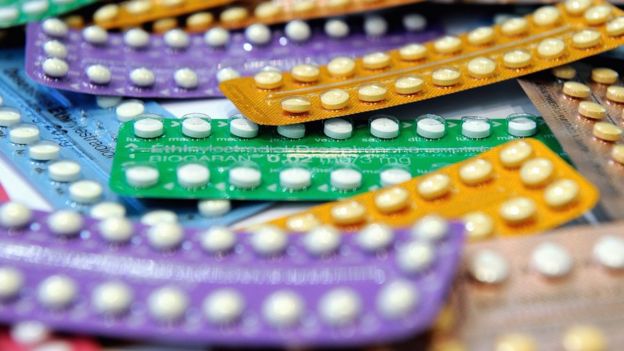 GETTY IMAGES
GETTY IMAGES
While the contraceptive pill may result in fewer humans inhabiting the planet - reducing the strain on natural resources - a 2016 Swedish study unearthed evidence of an unusual drawback.
In her doctoral thesis at Lund University, Lina Nikoleris found the hormone ethinyl-estradiol (EE2) - a synthetic version of oestrogen found in birth control pills - was changing both the behaviour and genetics of some fish
In her doctoral thesis at Lund University, Lina Nikoleris found the hormone ethinyl-estradiol (EE2) - a synthetic version of oestrogen found in birth control pills - was changing both the behaviour and genetics of some fish.
When released into water as waste, EE2 was changing "the genetic balance" in fish such as salmon, trout and roach - which have more oestrogen receptors than humans.
The study also found EE2 made it harder for the fish to catch food.
"Previous studies have shown that the fish also develop problems with procreation," said Ms Nikoleris.
"This can lead to the complete disappearance of an entire fish population, and consequences for entire ecosystems."
Avocados
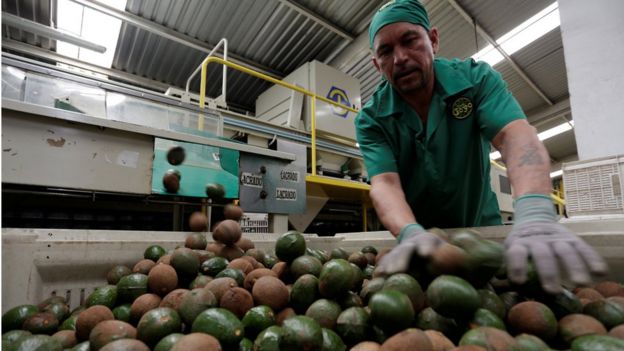 REUTERS
REUTERS
Bad news, avocado fans.
Not only is your favourite breakfast component preventing you from getting on the housing ladder, it is also bad for the environment.
The Water Footprint Network, which campaigns for more efficient water use, calculated that it took around 272 litres of water to grow a single avocado - with a potentially devastating effect on regions where it is grown.
In 2011, an investigation by the Chilean water authority found at least 65 examples of avocado farms illegally diverting rivers and other water sources to their plantations.
That, in turn, was blamed for causing droughts, forcing local villagers to choose between drinking and washing.
- How does sunscreen work?
- Project to decode 'all complex life'
- Hotter days and 'tropical nights' for UK
Pineapples
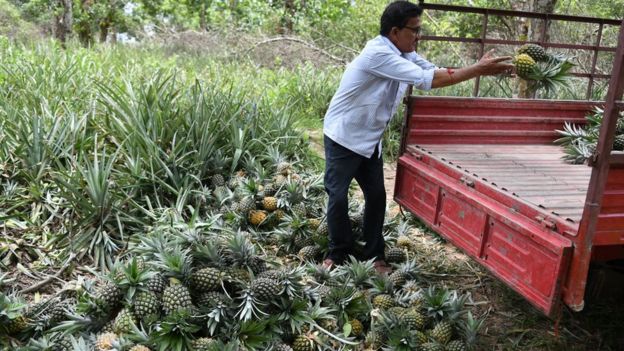 GETTY IMAGES
GETTY IMAGES
Another UK supermarket favourite also leaves a sour taste in the mouth.
The pineapple, which according to Tesco overtook the avocado as the fruit with the fastest-growing UK sales last year, is being grown at such a rate that it is having a detrimental impact on the environment in some parts of the world.
In Costa Rica, one of the world's largest producers, thousands of hectares of forest have been cleared to make way for pineapples
The Costa Rican Conservationist Federation says complete forests have disappeared overnight, causing irreversible damage to the country.
Pineapples are grown in vast monocultures - the intense production of only one crop - and require a large amount of pesticides, which can also be harmful for the environment.
Shampoo
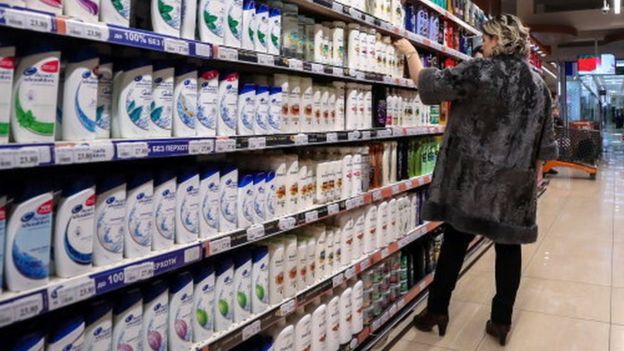 PA
PA
Palm oil is one of the most efficient and versatile vegetable oils on the planet - but its widespread use has led to significant deforestation.
In a 2018 report, conservation group the WWF warned the conversion of tropical forests and peat land to palm oil plantations was releasing "massive quantities of carbon dioxide, fuelling climate change, and destroying the habitat of species like orangutans".
While you may be aware of palm oil's presence in edible products such as chocolate, margarine, ice cream, bread and biscuits, fewer people know of its role in numerous household products.
In shampoo, for example, palm oil is used as a form of conditioner to help maintain your hair's natural oils, which would otherwise be stripped away by chemicals.
Palm oil is also found in products such as lipstick, washing detergents, hand soap and toothpaste.
Air fresheners
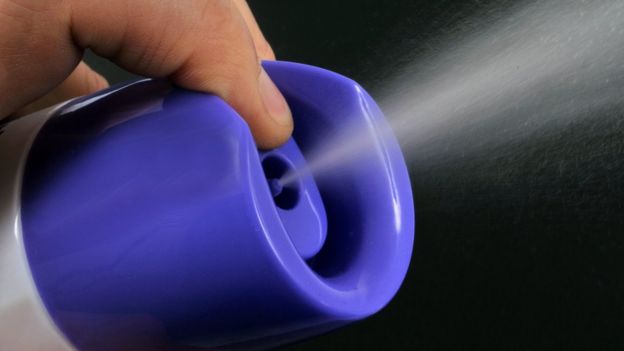 GETTY IMAGES
GETTY IMAGES
The dangerous levels of air pollution in the UK have been well publicised - but did you know that air fresheners could be part of the problem?
A 2016 report, from the Royal College of Physicians, warned that it was not just outdoor air pollution which people needed to be wary of but also poor air quality in our homes, caused by everyday household products such as air fresheners.
These often contain a chemical called limonene, which is commonly used to give a citrus smell - and is also used in food.
It is not a chemical that poses a big hazard to health on its own but once released into the air it can become a problem.
An experiment carried out by the BBC's Trust Me, I'm a Doctor show found that when limonene reacted with the ozone present in air, it produced formaldehyde.
Everyday exposure to formaldehyde may contribute to increasing incidences of asthma and other illnesses.
Links between formaldehyde and cancer were established in the 1980s, and since 2011 it's been listed as a known human carcinogen.
Keine Kommentare:
Kommentar veröffentlichen